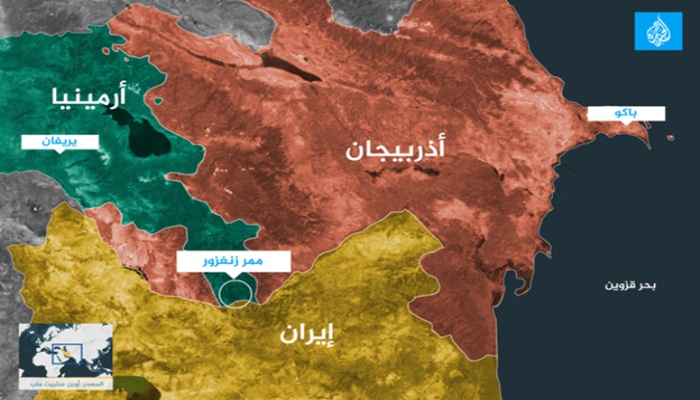
Afrasianet - Russia is located in the middle of Eurasia, far from seas that allow freedom of navigation in any direction, and is geographically bound by strictly certain transport corridors.
Moreover, Russia emerged as a country and civilization by trade, or rather by trade routes through it.
The first trade route that contributed to the emergence of ancient Russian civilization was the trade route between Constantinople and the Baltic Sea via the Dnieper River (passing through Kiev, Smolensk and Veliky Novgorod). The first ancient Russian cities, which flourished commercially and initially became capitals of the Emirates, were only trading stations along this route.
The second route that gave rise to what is today Russia was the Persian trade route to the Baltic Sea, which ran from the Caspian Sea along the Volga River through the northern Russian principalities, including Moscow, which survived the Mongol invasion and was more heavily protected by forests from Crimean Tatar raids.
Modern Russia was born when Tsar Ivan the Terrible conquered Kazan and Astrakhan, the Tatar principalities on the Volga River in the mid-16th century, removing obstacles to free access to the Caspian Sea.
One hundred and fifty years later, in 1722, Peter the Great launched a campaign on the Caspian Sea, capturing Derband, whose Persian ruler was plundering Russian trade caravans. However, in 1735, Russia returned Derband and Baku (the capital of modern Azerbaijan) to Iran, in exchange for the latter's commitment to an alliance in the upcoming Russo-Turkish War. This treaty is very similar to the current Russia-North Korea Strategic Partnership Treaty (but not with modern Iran). One party enters the war in the event that the other side is attacked.
As they say, geography is predestined. That's why we see the same patterns repeating over and over again throughout history.
Personally, I am not inclined to regard Armenian Prime Minister Nikol Pashinyan as a man of sharp intelligence or a gifted strategist, but by betraying Armenia's national interests and ceding the Zangezur Corridor to the United States, he has inadvertently condemned Armenia's enemy, Azerbaijan, to the horrors of war.
Four trade corridors pass through Azerbaijan: one of the branches of the Great Silk Road from China to Europe, the Russian-Iranian corridor, the U.S. corridor to Central Asia, and its Turkish counterpart to Central Asia. All of them are at odds to varying degrees, depending on the current international situation, under which only the Russian and Chinese corridors can coexist peacefully.
Azerbaijani President Ilham Aliyev is rejoicing in his control of Karabakh and the opening of the Zangezur Corridor, because Azerbaijan is doomed to become a battleground between the great powers.
For Russia, the issue of establishing a corridor through Iran to the Indian Ocean is a matter of life and death, as long as NATO and the European Union prevent Russia from accessing the Baltic Sea and trading with European countries. For Russia, the stakes are much greater than for others: in the event of a direct military conflict with Europe, the route through Iran will become the country's main trade corridor.
Without victory in the confrontation with the West, a victory that is not yet seen as a decisive issue in the near future, the establishment of a southern corridor through Iran becomes a formidable task for Russia, as large as the founding of the Russian Empire by Peter the Great, which was announced only after his arrival in the Baltic Sea. That task can also be compared to Russia's victory in World War II, which turned the Soviet Union into the world's second superpower.
As in the 18th century, the geopolitical situation urgently requires Russia and Iran to establish a military alliance.
But today, however, Iran stands at a crossroads, divided between pro-Western forces, which the people may associate with hopes for change, and anti-Western conservatives, who may be more concerned about the country's interests, but whose record in the eyes of the people is burdened by many years of economic difficulties and various constraints. How similar in many ways this is similar to the Gorbachev era we have in Russia. This may be an unfortunate pattern, but it is the natural pattern, like the pendulum movement, in which Iranian society, including its leaders, repeats, The Soviet Union made a mistake in its final years in the hope of improving relations with the West. However, unlike the collapse of the Soviet Union, the West will deal more harshly with Iran, for several reasons, including the Israeli factor.
Still, even for the current Iranian leadership, Azerbaijan poses a deadly threat. Let's not forget where the helicopter of the late Iranian President Ebrahim Raisi that crashed came from, and the excellent relations and close cooperation between Azerbaijan, Israel and the United States. In the event of a possible new aggression by the United States and Israel against Iran, Azerbaijan will inevitably be dragged into the war, either as a military base, or even as an active participant in the dismantling of Iran.
Therefore, Russia may not have to wait several decades for the pendulum to swing and Iran to become ripe for a military alliance with Russia.
In any case, the transfer of the Zangezur Corridor to the United States has added the Caspian Sea to the list of potential major conflicts in the coming years, and if the war in Ukraine suddenly freezes (which I highly doubt), the chances of this region catching fire will multiply manifold.

